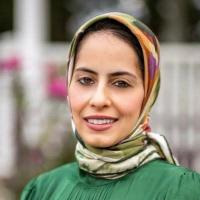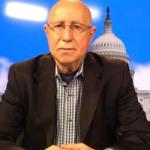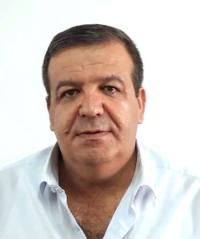Press coverage of Israel-Hamas conflict, repercussions explored in 2 webinars May 21-22
The National Press Club’s Freedom of the Press Team this month will convene two online panel discussions to hear from Palestinian, Israeli and American journalists and experts about coverage decisions, reporting realities, and the impact of hostile reactions from governments and the public.
These virtual panels on Tuesday, May 21, and Wednesday, May 22, are free and open to the public, but registration is required. See the links below.
The press freedom impacts of the Israel-Hamas war have been far-reaching over the course of the seven-month conflict. They include the appalling and tragic killings of some 100 journalists and media workers; the Israeli government’s move this week to shut down Al Jazeera’s local operations in Israel as well as its use of administrative detention to detain without charge a record number of Palestinian journalists; and a deeply toxic and threatening online and offline environment for journalists covering the war.
All these issues and more have combined to produce one of the most difficult climates for independent reporting around the world for what is arguably also one of the world’s most important stories.
Part 1: Palestinian Panel
First is the Palestinian panel on Tuesday, May 21, at 11 a.m. EDT. Register here.
Confirmed speakers include:

Laila Al-Arian, an Emmy and Peabody award-winning journalist for Al Jazeera English, where she is the executive producer of the current affairs show, Fault Lines. A Palestinian American, she is also the co-author of "Collateral Damage: America's War Against Iraqi Civilians."

Said Arikat, has been the Washington bureau chief of Al Quds Daily since 2010 and a longtime fixture at State Department daily press briefings. A Palestinian, he previously worked as a spokesman for the U.N. Assistance Mission for Iraq.

Raed Othman, founder and executive director of the Palestinian media network Ma’an, a nonprofit dedicated to enhancing democracy and human rights in Palestine through the strengthening of independent Palestinian media. Ma’an’s multimedia offerings include television, radio, online news, and social media and are a critical source of news for Palestinians living in the West Bank and Gaza.

Yasmine El-Sabawi (moderator), a Palestinian-Canadian freelance journalist based in Washington. She has covered U.S. foreign policy for the Kuwait News Agency and TRT World.
Part 2: Israeli Panel
The next day, Wednesday, May 22, the Israeli panel will convene at 11 a.m. EDT. Register here.
Confirmed speakers include:

Talia Dekel-Fleissig, the CEO since February 2023 of the Jerusalem Press Club. She has also been the head of international press strategy at the U.S.-based media engagement group the Israel Project, an editor for The Jerusalem Post, and an officer with the Israeli Defense Force’s Liaison and Foreign Relations Division

Anat Saragusti, head of press freedom at the Union of Journalists in Israel. Saragusti is a documentary filmmaker, book editor, freelance journalist and commentator, focusing her work on state security, women’s participation in decision making processes, and the Israeli-Palestinian conflict. She has also worked as the correspondent to Gaza for TV Channel 12 news.

Bruce Shapiro, executive director of the Dart Center for Journalism and Trauma, a project of the Columbia University Graduate School of Journalism. An award-winning reporter on human rights, criminal justice and politics, Shapiro is a contributing editor at The Nation and an adjunct professor at Columbia, where he teaches journalism ethics.

Hadas Gold (moderator), a correspondent on CNN’s media team. Previously, Gold was a correspondent in Jerusalem where she covered the Oct. 7 Hamas terrorist attacks on Israel as well as the 11-day conflict between Hamas and Israel in 2021, the alarming rise in violence between Israelis and Palestinians in the West Bank, the future of the Palestinian Authority, and Israel’s internal political turmoil.
